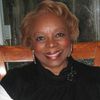Lucas Cole
Lucas Cole ran for election for an at-large seat of the Ann Arbor Board of Education in Michigan. He lost in the general election on November 6, 2018.
Cole completed Ballotpedia's Candidate Connection survey in 2018. Click here to read the survey answers.
Elections
2018
General election
General election for Ann Arbor Board of Education At-large (4 seats)
The following candidates ran in the general election for Ann Arbor Board of Education At-large on November 6, 2018.
Candidate | % | Votes | ||
| ✔ |  | Jessica Kelly (Nonpartisan)  | 15.6 | 29,801 |
| ✔ |  | Rebecca Lazarus (Nonpartisan)  | 15.2 | 28,990 |
| ✔ |  | Bryan Johnson (Nonpartisan)  | 14.5 | 27,545 |
| ✔ |  | Susan Baskett (Nonpartisan) | 12.3 | 23,492 |
 | Lucas Cole (Nonpartisan)  | 12.3 | 23,346 | |
 | Christine Stead (Nonpartisan) | 11.0 | 21,021 | |
 | Patricia Ashford Manley (Nonpartisan)  | 9.6 | 18,288 | |
| Suzanne Perkins (Nonpartisan) | 9.1 | 17,385 | ||
| Other/Write-in votes | 0.3 | 585 | ||
| Total votes: 190,453 | ||||
 = candidate completed the Ballotpedia Candidate Connection survey. = candidate completed the Ballotpedia Candidate Connection survey. | ||||
| If you are a candidate and would like to tell readers and voters more about why they should vote for you, complete the Ballotpedia Candidate Connection Survey. | ||||
Do you want a spreadsheet of this type of data? Contact our sales team. | ||||
Campaign themes
2018
Ballotpedia survey responses
See also: Ballotpedia's Candidate Connection
Lucas Cole completed Ballotpedia's Candidate Connection survey. The survey questions appear in bold and are followed by Cole's responses.
What would be your top three priorities, if elected?
1. I will combat the privatization of school programs e.g. busing, meal programs, janitorial services etc. Supporting in-house union workers will be a top priority for me on the board because they are truly committed to the students and not to corporate profit margins. 2. I will push to shift disciplinary practices from punitive to rehabilitative whenever possible. The board can look for guidance from programs like Skyline's Sky Squad, which last year handled 50% of potential suspension cases and remedied the problems through restorative justice. Instituting this type of program on a broader scale could also help eliminate the racial discrimination that is currently so pervasive in student discipline. I also believe it is imperative that administrators respect students' due process rights throughout disciplinary procedures. Administrators need to learn respect for the civil liberties of students through the board's direction. In addition, this process should encompass educating students about their rights (T.L.O. v. New Jersey + applicable Michigan statutes) so that they can hold the administration accountable. 3. The current board's apathy and sometimes even preference towards the DeVos education agenda that favors a curriculum of excessive standardized testing and not on meaningful student learning. I will fight the conservative education policy created in Lansing by working within the language of the state's education policy to construct a local policy of reduced testing that is favored by the teachers' union. The School Board's autonomy in these matters is limited but complacency is not an option when fighting an uphill battle.
What areas of public policy are you personally passionate about?
Racial justice and class struggles have been an important focus of my education in high school and in my studies at the University of Michigan. I have tried to extend my efforts beyond abstract studying to practical applications. In a course I took at U of M called, Crime and Drugs in Modern America, I wrote a policy proposal on the elimination of mandatory minimum sentencing laws (http://colehistory366finalproject.blogspot.com/p/reform-of-mandatory-minimum-sentencing.html). I have also been extremely passionate about reproductive justice work over the past few years. I worked for several years as a Peer Educator at Planned Parenthood where I was certified as a sexual health educator with over 80 hours of comprehensive training on reproductive health and available community resources for teens who are struggling with issues such as sexual assault, STIs, homelessness. In that role I did presentations in high school health classes on STIs, contraceptives, and LGBT inclusive classrooms. I also served on SHEAC (Sexual Health Education Advisory Committee) which reviews proposed sex ed curriculum and recommends what the school board should and should not approve. During my time on that board I helped to introduce sex ed curriculum for special education students, wrote a new presentation on LGBTQ inclusion and worked on creating a toolbox for teachers to help them navigate topics concerning sexual assault and harassment.
Who do you look up to? Whose example would you like to follow, and why?
When I look to history for inspiration from people who were not afraid to speak truth to power I think of Ann Richards, the 45th governor of Texas. She was a progressive politician who rose to prominence in a conservative climate against all odds. She disrupted the status quo by condemning big money in politics and fought to decentralize education by giving power to local authorities. I see the state of the school board and the district as analogous to that of Texas in the early 1990s. The district needs dissent against policies of privatization and the communications strategy orchestrated by the central administration that there is nothing wrong with corporations in our schools. Like Ann Richards I am not afraid to break ranks for the good of the people I serve. I will be extremely vocal about my concern with the conservative direction the board is taking the district.
What characteristics or principles are most important for an elected official?
I think it is crucial for public officials to be able to receive criticism and listen to those who disagree with you. The board's current majority is content to make important decisions behind closed doors in a conference room. If you elect my running mates, Rebecca Lazarus and Bryan Johnson, and me we will make decisions in the public sphere, promote vigorous debate, and encourage constituents to share their wealth of diverse perspectives. We will ensure that our district has a transparent policy agenda that welcomes public scrutiny and encourages administrative introspection. We will drive policy from the bottom up not the top down.
How will you build relationships with members of the broader community? Which groups, organizations, stakeholders will you specifically target?
As the only recent graduate of the public school system running for school board I have a unique understanding of the tangible ways that policy affects students on an every day basis. I want to be an advocate for the students. The students of the Ann Arbor Public Schools District need someone to fight for their right to speak and for someone to fight for their voices to be genuinely listened to and appreciated. The impetus can no longer be on students to speak out. The district needs to have concrete mechanisms for incorporating students into the decision making process. I can be that liaison between students and the administration that allows those voices to be heard. I believe we should empower students to elect non-voting board members that could contribute to policy discussions by illuminating the way specific issues affect the students at their school.
What will you do to build a better relationship with parents in the district? What plans do you have to be inclusive of parental involvement?
I believe that the current board has belied the views of parents from the decision making process on major policy issues. The current majority of the board is content to make decisions by themselves without input from their constituents. I believe that the board should be creating subcommittees for particularly important issues that welcome parent participation. On a more basic level I feel that the School Board members simply need to be more accessible to parents and foster strong relationships with those interested in sharing their perspectives. If a parent wants to speak with me about the issues facing their children I will!
Do you believe it is important to intentionally recruit with the aim of diversifying the district’s faculty, staff, and administration? If so, what would be your policy to achieve this?
I believe that having diverse staff and faculty is essential to the success of our students. I will support hiring practices that emphasize the importance of hiring employees with identities and experiences that more accurately represent our diverse student body. I believe that a crucial means of achieving this goal is by having an equally diverse hiring committee that incorporates a variety of perspectives beyond the more homogenous administration.
What issues get in the way of quality education? How would you address these obstacles?
I am extremely concerned with the hostile attitude the current board's majority has towards the Ann Arbor Education Association and its lack of respect for the teachers' perspective on policy. When teachers do not feel supported by their administration they are not able to perform the best they can. I will cultivate a strong relationship with the union that values their members' experiences and will work collectively to strengthen teachers' bargaining powers.
What constitutes good teaching? How will you measure this? How will you support advanced teaching approaches?
I believe that the current teacher evaluation system used by the district is failing the teachers and the students. The Danielson Rubric is being used as a checklist for administrators to grade teachers in a meaningless way. I believe that we need to follow the guidance of Charlotte Danielson, the economist who created the rubric the district uses, who believes that the current way the district is using her methods is wrong. She believes that the rubric should be used as guidance in constructive conversations between administrators and teachers where both parties are able to work together to identify areas of growth. This shift in approach will make the process less stressful and time consuming for everyone as well as help teachers improve.
In what areas would you like to expand curriculum? For example, do you see a need for advanced technical training or apprenticeships? What sort of innovative programming would you advance if given the opportunity?
I would like to expand the wraparound services offered by the district. It is clear that the success of a child is largely dependent upon factors outside of the classroom. Children of a higher socio-economic status are much more likely to succeed academically because their parents can afford to pay for resources like tutors, specialized child care, and standardized test preparation courses. I believe that the district should expand these programs significantly in order to ensure those who come from less affluent families are given sufficient support structures outside of class to succeed in school.
What strategies or plans would you advance to ensure the schools are properly funded?
I understand the importance of fiscal responsibility but not when it means compromising progressive values. Unlike many of the incumbents, I believe that organized in-house laborers should be empowered and that outsourcing to save money is the wrong approach. Corporations are not intrinsically invested in the success and well being of the students. It makes no sense to spend state dollars on lower quality services that benefit executives and hurt working class people.
What principles drive your policies for safety in schools?
Safety is the number one priority for me as a board member. If the students are not or do not feel safe they cannot learn. I am, however, opposed to the punitive nature of the discipline procedures in place. I believe that the criminalization of students and fear mongering to instill order are not conducive to a functional pedagogical environment. I believe that students should feel supported by their administration and that the district should employ rehabilitative measures of discipline like restorative justice to ensure that schools are safe.
How might you support the mental health needs of students/faculty/staff?
I believe that it is crucial to expand the amount of mental health professionals available to students on an every day basis. Once that has been done, I believe it is essential that those resources are made extremely visible to students, staff, and teachers. When I was a student in high school my peers and I were not aware of the resources at our disposal. The administration needs to actively combat the stigma surrounding mental health to embolden students to seek and receive help.
What role do you imagine technology playing in (and outside) the classroom in the future? How would you prepare the district for this?
I believe that technology can serve an important role in the education of students. I fully support education surrounding digital literacy as well as more concrete skills like coding. However, I believe that at certain times in our district technology has been too pervasive in the pedagogical process. The latest research shows that when students are allowed to use laptops and smartphones in classrooms that the quantity and quality of engagement between students about the material decreases.
Note: Ballotpedia reserves the right to edit Candidate Connection survey responses. Any edits made by Ballotpedia will be clearly marked with [brackets] for the public. If the candidate disagrees with an edit, he or she may request the full removal of the survey response from Ballotpedia.org. Ballotpedia does not edit or correct typographical errors unless the candidate's campaign requests it.
See also
External links
Footnotes
| Ann Arbor Public Schools elections in 2018 | |
| Washtenaw County, Michigan | |
| Election date: | November 6, 2018 |
| Important information: | What was at stake? |







